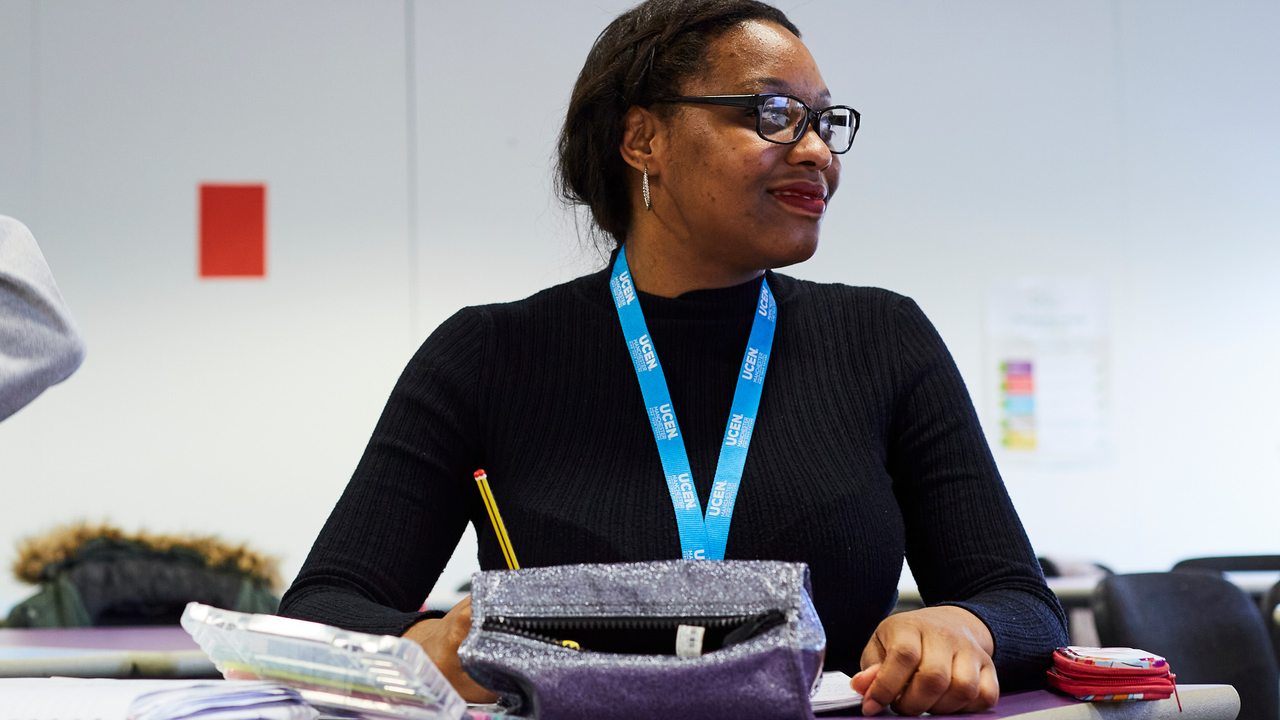A Complete Guide to Counselling Courses

Counselling courses provide the foundation for a fulfilling career helping and supporting people.
Counsellors are in the top 31% of careers in job satisfaction so it’s a truly rewarding career that helps people get through challenging stages in their lives.
Whether you're looking to change careers, build on your existing skills, or start fresh, here at UCEN Manchester we offer a range of flexible and accessible counselling courses to suit your needs and put you on the path to reaching your career goals.
This guide will discuss counselling courses, exploring everything from course types and durations to career prospects and financial considerations.
We'll cover topics such as:
- What is a counselling course?
- What do you learn in a counselling course?
- Which counselling course is best?
- Can you do a counselling course online?
- How long does it take to become a fully qualified counsellor?
- How much does a counselling course cost?
- Which counselling courses are accredited?
- What careers can a counselling course lead to?
By the end of this guide, you'll have a comprehensive understanding of counselling courses and be equipped to make informed decisions about your future.
What is a counselling course?
A counselling course is a pathway to get started and get the qualifications you need to secure a job in counselling. You'll learn different counselling theories, such as psychodynamic, cognitive-behavioural, and humanistic approaches and how to put them into practice.
You'll also pick up essential skills like active listening and empathy and get hands-on experience with real clients under the guidance of experienced counsellors.
What do you learn on counselling courses?
When you study a counselling course, you’ll learn psychological theories. These theories provide frameworks for understanding human behaviour and mental health conditions, laying the foundations for more complex learning.
Beyond theoretical knowledge, you'll develop essential practical skills such as active listening and effective communication when counselling an individual, under the guidance of a tutor or counselling professional.
Also, you'll explore ethical guidelines and professional boundaries to ensure responsible and ethical practice. This prepares you to work effectively with clients and make a positive impact on their lives.
Which counselling course is best?
The best counselling course is typically a BA (Hons) degree in counselling.
It’s often considered the best qualification if you want to seek employment in counselling, offering a comprehensive curriculum that includes in-depth theoretical knowledge and practical skills.
This qualification is highly valued by employers and professional bodies and it can open up a wide range of career opportunities as you’ll be a qualified counsellor upon graduation.
Can you do a foundation degree in counselling?
If you don't meet the entry requirements for a full degree but need another route to higher education, a foundation year in counselling can be a great way to prepare yourself.
Foundation years provide academic preparation and a pathway to a degree course. They can boost your confidence and equip you with the necessary tools to succeed in higher education.
Which counselling courses are accredited?
Our counselling courses are accredited by the British Association for Counselling and Psychotherapy (BACP), a leading professional body for counsellors and psychotherapists in the UK.
BACP accreditation signifies that our courses meet the highest industry standards. This ensures that our graduates are well-prepared to meet the demands of the counselling profession and provide effective support to their clients.
What careers can a counselling course lead to?
There are many exciting careers a counselling degree can lead you to, for example:
- School Counsellor
- Career Counsellor
- Addiction Counsellor
- Counselling Psychologist
- Psychotherapist
- Rehabilitation Counsellor
- Social Worker
- Support Worker
- Bereavement Counsellor
- Family Counsellor
- Psychologist
- Youth Counsellor
- Psychotherapy
- Sports Psychologist
While some of the qualifications above may require some additional professional development or experience in the industry, a counselling degree lays the foundations to help you secure employment and seek a career that suits you!
How long does a counselling course take?
Counselling courses can vary in length depending on which one you do. A foundation degree is typically a one-year course. A BA (Hons) top-up course usually lasts two years.
How long does it take to become a fully qualified counsellor?
The time it takes to become a fully qualified counsellor can vary depending on several factors, such as the specific field of counselling and the chosen qualifications. However, it typically takes between three to five years to become a licensed counsellor.
Can you do a counselling course online?
Yes, you can do a counselling course online. However, in-person courses are often considered more effective, because they offer more opportunities for practical experience and face-to-face interaction with tutors and clients.
Are online counselling courses recognised?
Yes, online counselling courses are recognised, especially those offered by accredited institutions.
How much is a counselling course?
The cost of a counselling course can vary depending on the level of qualification you're pursuing.
University fees:
- Foundation Degrees: Typically, around £6,000 per year.
- BA (Hons) Degrees: Fees are typically around £9,250 per year.
For students from England, SFE offers financial support, including loans to cover tuition fees and living costs. You can apply for a tuition fee loan to cover the full cost of your course fees and a maintenance loan to help with living expenses.
Why choose UCEN Manchester for your counselling course
UCEN Manchester offers a supportive learning environment for aspiring counsellors. With state-of-the-art facilities, experienced tutors, and BACP-accredited courses, we provide the highest quality education on our counselling courses.
Our strong industry links in Manchester offer excellent opportunities for work placements and job placements.
UCEN Manchester’s supportive learning environment, including academic advice, careers guidance, and wellbeing support, ensures you're well-equipped to succeed in your counselling career.
Enrol onto either the Counselling BA Hons Degree or our Foundation Counselling course at UCEN Manchester and begin the journey towards your dream career today!

